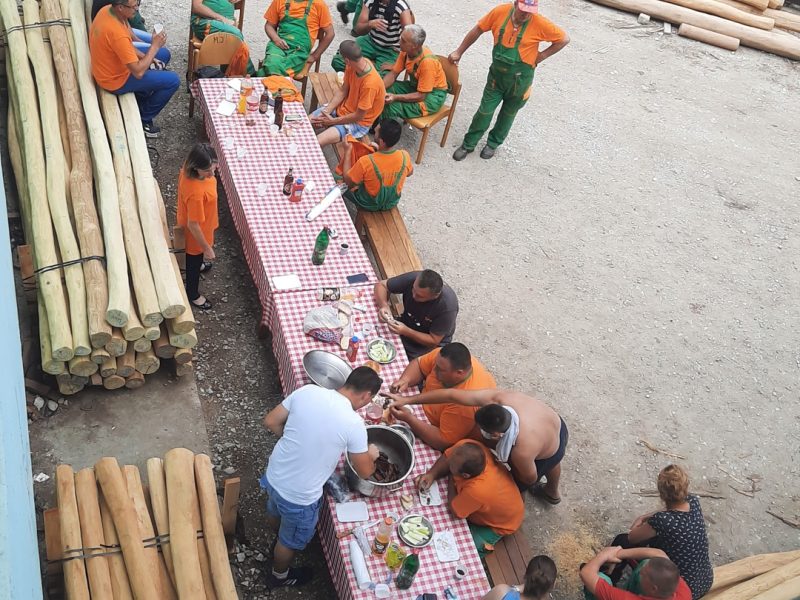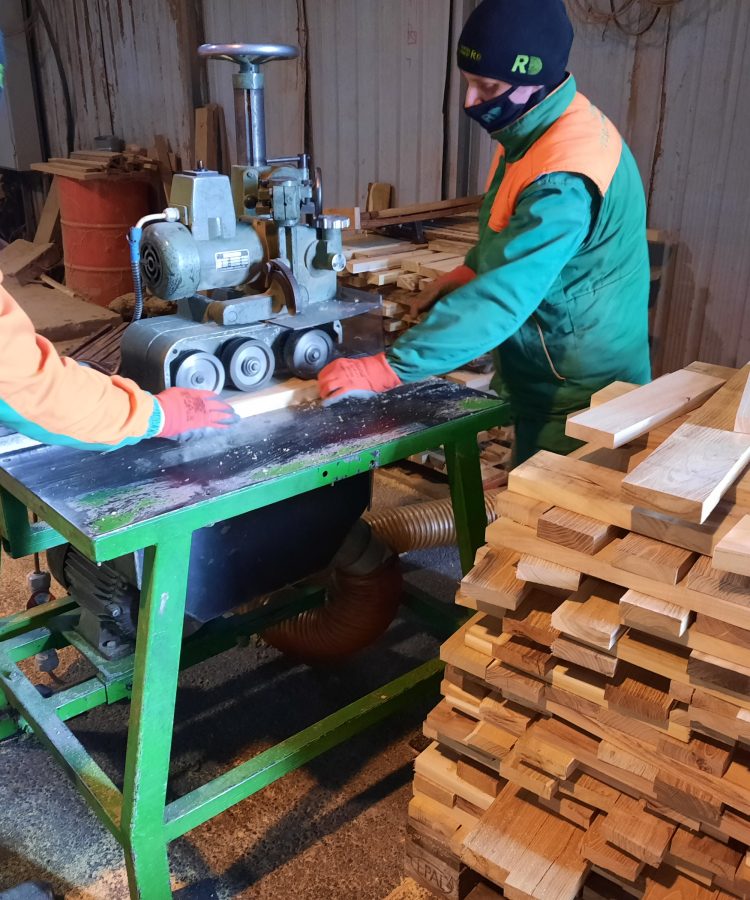
Our heart is made of robinia and beats for sustainable regional wood processing. The fact that we are successful with this makes us proud.


Our concern is to promote the use of Robinia. This is because Robinia wood is a local, resistant alternative to hardwoods from primary (tropical) forest. We constantly strive to research and develop the processing of Robinia and its sustainable silviculture, and to bring Robinia into the current building standards as a building and construction timber.
Our Story
Since our establishment in 2013, we have grown from a simple processing company to a high-end manufacturer of all kinds of Robinia products. Today we employ more than 60 people.
We are a pioneer in robinia finger-jointing. We work according to a process developed by our parent company eurobina in 2004. It particularly meets the peculiarities of robinia wood and the high requirements for stability and strength of joints. We are experts in high-quality finger-jointing products and are constantly researching and improving our processes.
We are the only finger-jointing plant for Robinia with a test laboratory where we constantly check the moisture content of the wood and the bonding for flank density and breaking strength. For control purposes, we conduct regular comparative tests at the Materials Testing Institute of the University of Stuttgart (MPA).
Since 2019, RD has been led by a management team of three women and one man. Together, we strive to make our production processes even more sustainable and to contribute to regional development in Serbia.
Some impressions from our factory on Serbian TV (in Serbian).
Our goals
A lot has happened in the last eight years. We have improved our production technology and perfected finger-jointing. We buy wood exclusively on account to avoid corruption and have introduced our own system to prevent the purchase of illegally logged wood. We have decided to ban single-use plastic from production. And we have worked to increase gender equity in the company, achieving a 2:1 male-to-female ratio on our team so far.
But we can go even further. We want to be an example of regional, sustainable wood processing to show that durable wood products do not have to come from tropical rainforests and be transported thousands of kilometers.
Sustainability
In our CSR report (PDF in German / in Serbian), you can find more detailed information about the measures we already took as well as our plans for the future. We will publish it here soon.
Background
Our work in Serbia came about partly "by chance" and partly as a result of my many years of experience in processing black locust trees. In the process, I repeatedly came across systematic corruption among state employees - whether foresters, ministers or police officers who deliberately look the other way. These abuses are widespread not only in Serbia, but in many Balkan states, Hungary and Ukraine.
I regularly find evidence of corruption, particularly in certified state forests. One of the reasons for this is that timber from state forests is often considerably cheaper and available in larger quantities than timber from private forests. In the Balkans, the latter are often small-scale or barely existent.
Our approach: transparency and integrity
Corruption is extremely damaging to society and the economy. It is one of the main reasons for the growing disenchantment with politics and faltering economic development. That is why we proactively look for opportunities for corruption and consistently rule them out - unlike the FSC, which does not proactively look for corruption but relies on existing certification mechanisms. Our company has developed a system that largely excludes corruption and illegal timber and is continuously being expanded through years of feedback from other companies.
What do we mean by illegal timber?
I developed the concept of the Fair Stewardship Commitment (FSC) many years ago. The aim is to pass this knowledge on to partners and interested parties in the timber industry.
I offer a free basic consultation - without any contractual obligations. Only a licence agreement for the "FSC" trademark is signed, which enables the manufacturer's products to be labelled (if desired). Unlike commercial seals, however, labelling is not a prerequisite.
Fair Stewardship Commitment is deliberately not intended to be a commercial marketing label. I fundamentally reject such labels in their mostly neoliberal and - if they operate globally - neocolonial structure.
Any income generated by the consultancy will be donated to a non-profit organisation or foundation dedicated to the development and definition of sustainable forest management.
Are you interested in working with us or would you like more information? Contact our plant in Serbia - we look forward to exchanging ideas.